The Surprising Benefits of Sensory Play for Parents!


Louise @inspiremyplay
Part of the @InspireMyPlay team. Sensory play specialist and mum to two boys.
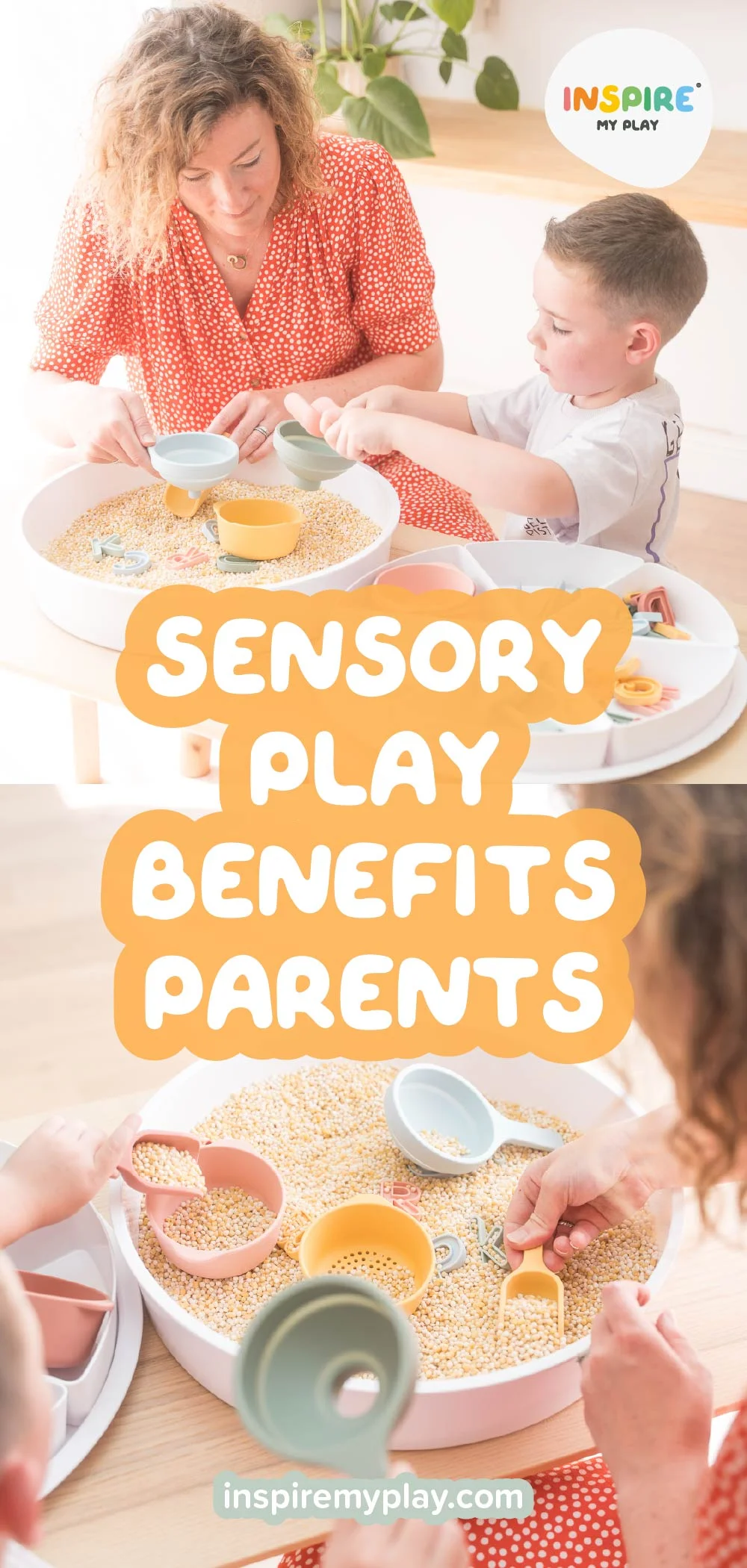
The Stress-Relief Power of Sensory Play for Parents
This is how sensory play has offered me relief from the daily stress:
1. Mindful Moments
The stimulating nature of sensory play makes it much easier to remain in the present moment. The repetitive actions of squeezing playdough, pouring water, or feeling different textures can all naturally draw us into a state of mindfulness. Mindfulness doesn’t have to mean being still and quiet, in our busy household this would never happen anyway! Mindful moments can also be found by simply allowing the body to be occupied with a low-demand task that doesn’t place any extra challenge on your brain, allowing your mind to meander along as you play.
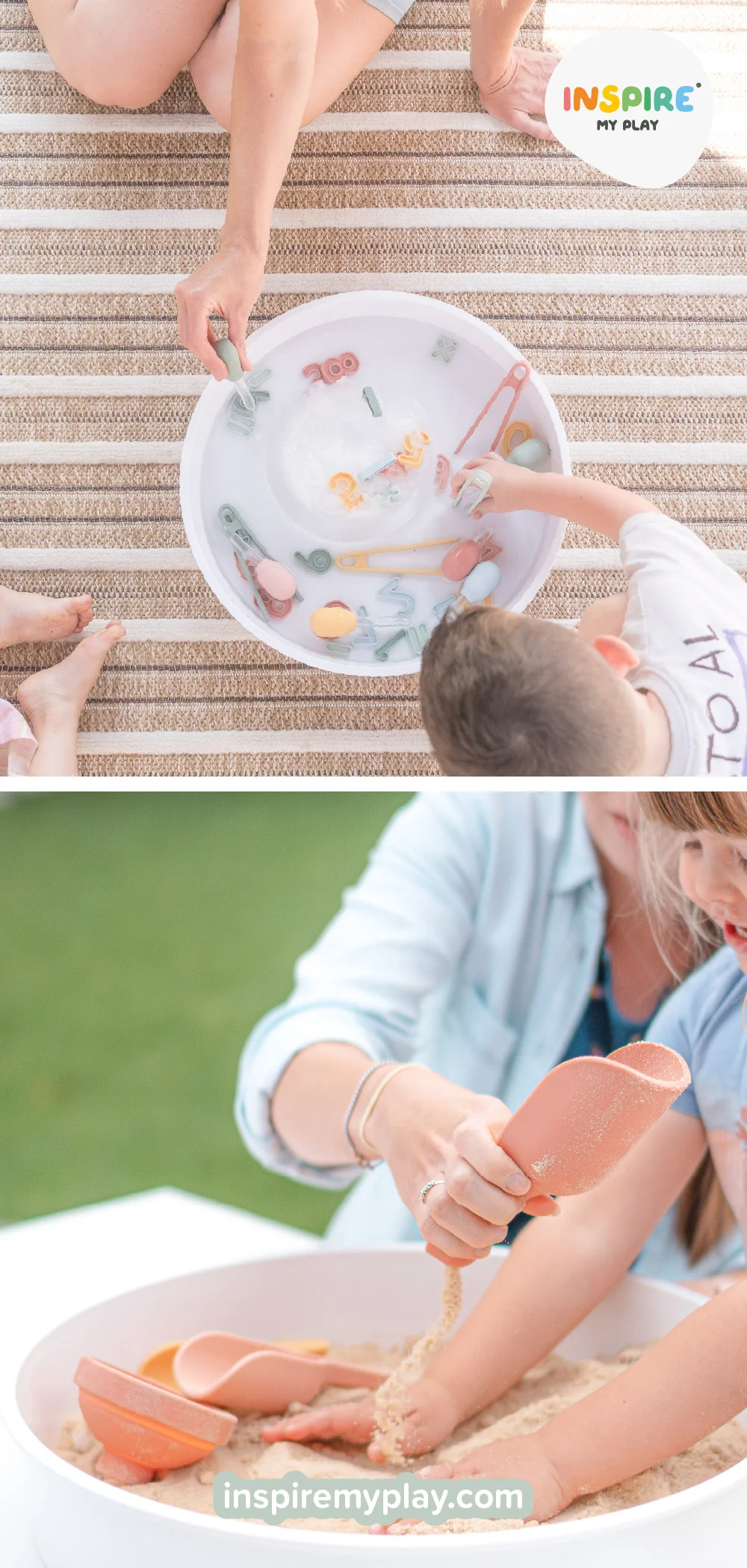
Even taking short mindful moments has been shown to reduce stress, improve emotional regulation, and promote relaxation, making it an ideal way to clear some of that mental clutter whilst giving quality time to our children.
2. Lowering Stress Hormones
The human body relies on it’s senses for so many things! When we engage in fun, tactile experiences, we activate the parasympathetic nervous system—the part of the body that controls rest and relaxation. When this part of our nervous system is ignited it decreases the stress hormone Cortisol in the body, helping us to feel calmer and think more rationally. We release endorphins which are the body’s natural “feel-good” hormones. This chemical boost helps humans feel more energized, positive, and relaxed. Babies and children know this instinctively and will seemingly spot opportunities to play anywhere and with anything – play is as natural as eating and breathing to them!
Getting stuck in with sensory play gives parents the opportunity to tap back into our own inner child and creativity.
3. A Quick, Effective Stress-Buster
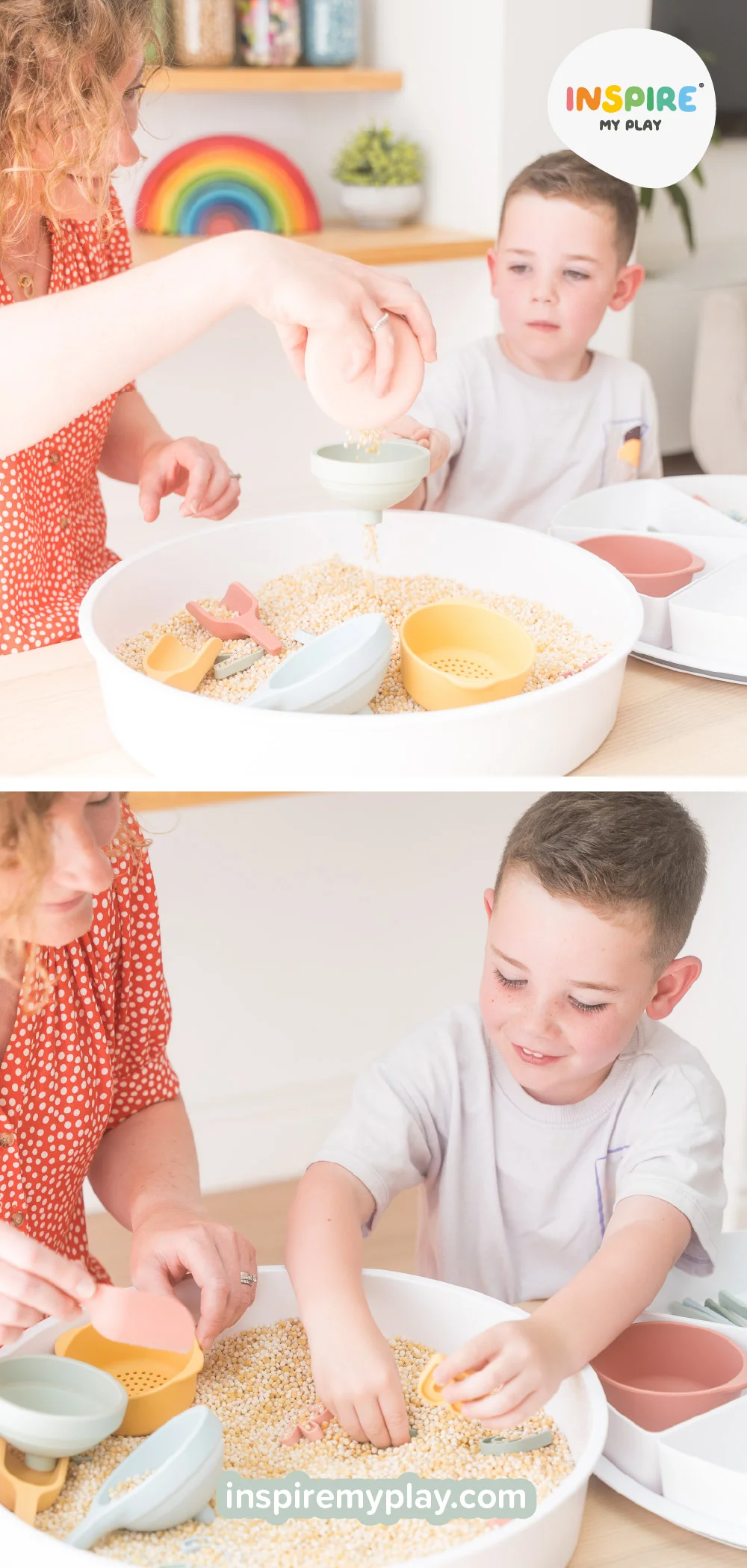
Sensory play doesn’t require hours of preparation or long-time commitments. Even just 10-15 minutes of playtime can help relieve stress and reset the emotional state. It might take a few minutes to relax into it, but it’s always surprising how quickly you can become immersed and begin to feel the calming effects.
Even a short period of play allows me to return to my daily tasks with a clearer mind and more balanced perspective.
Strengthening Parent-Child Bonds through Sensory Play
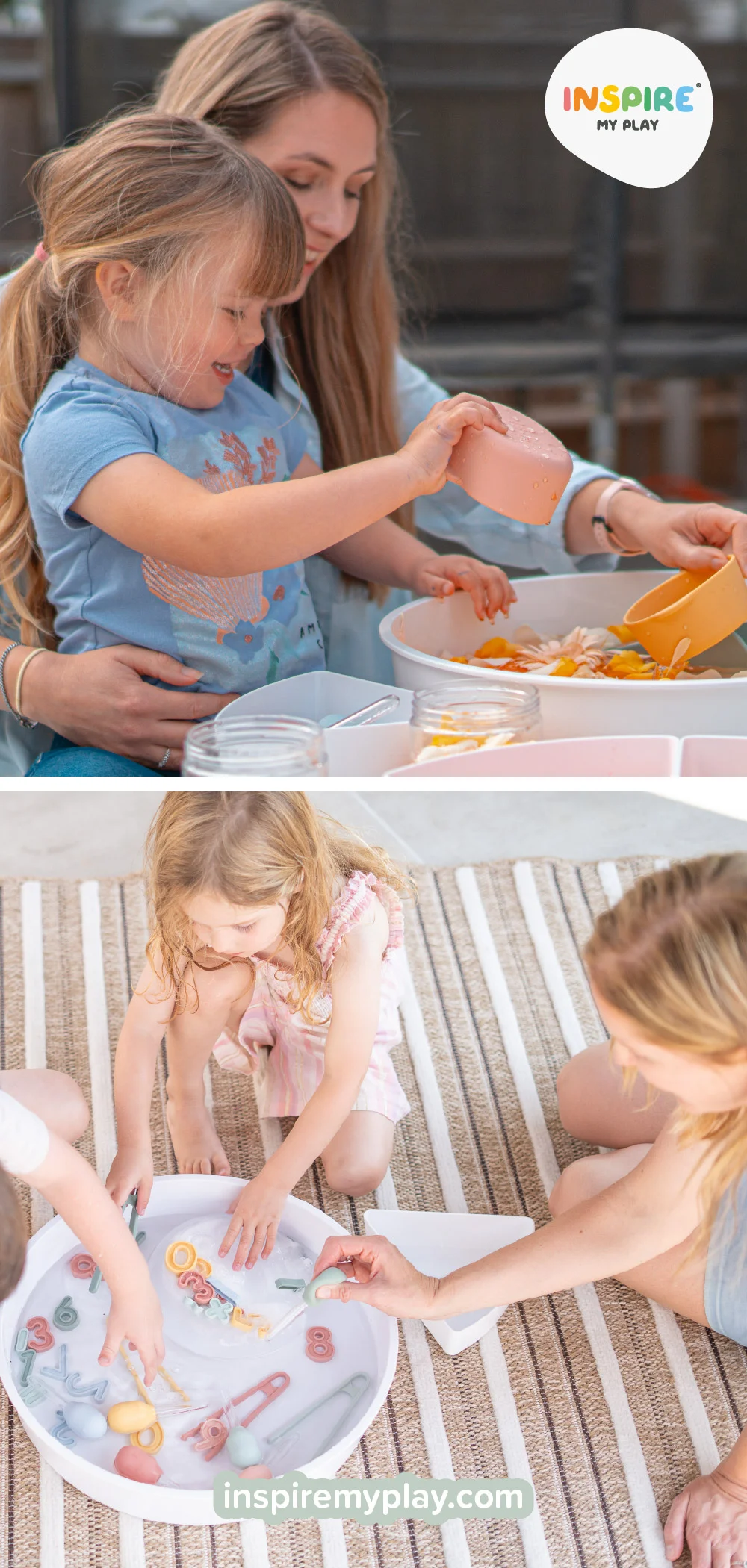
Here’s how sensory play connects me to my children in ways that other types of play sometimes cannot
1. Quality Time
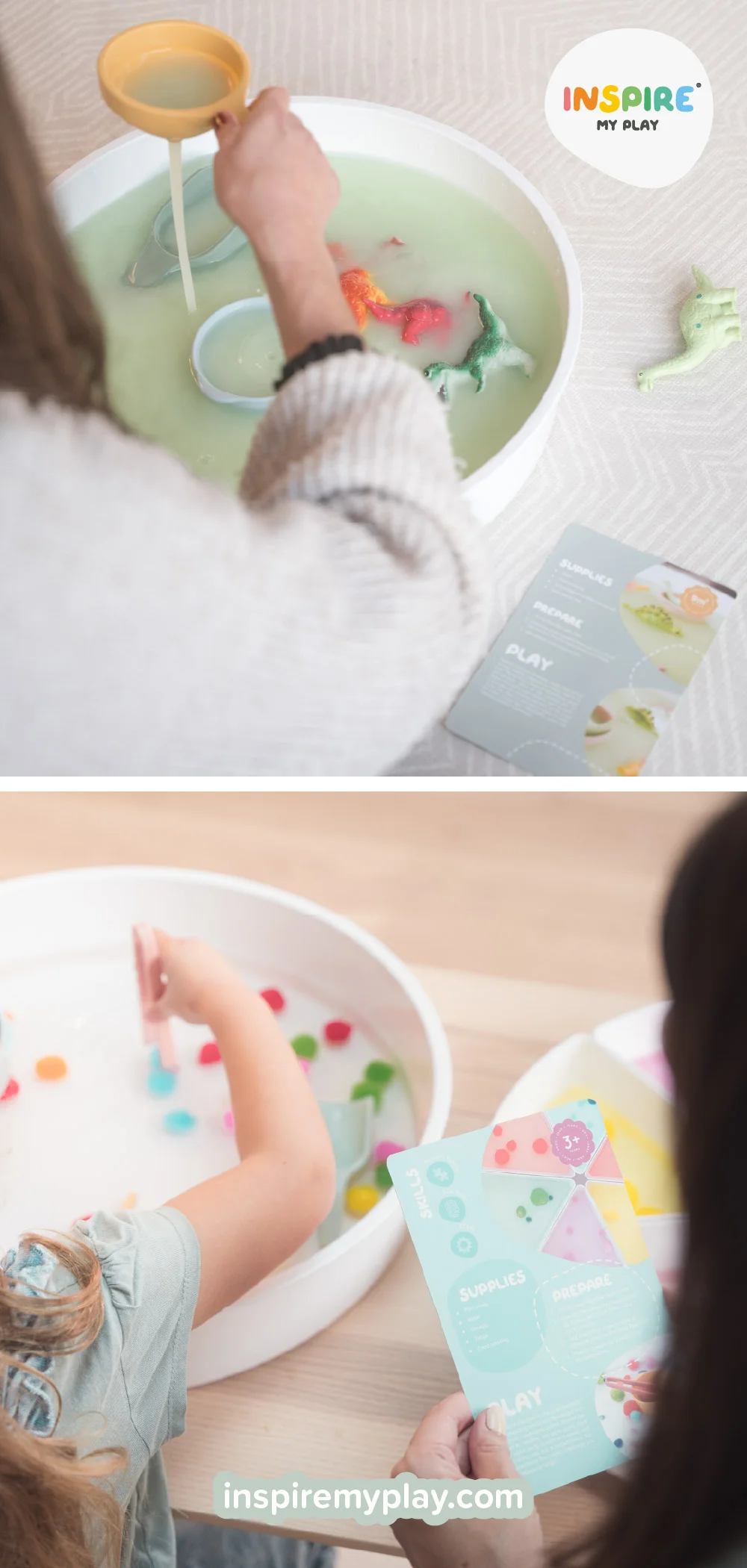
1. Non-Verbal Communication
3. Co-Parenting and the family unit
The power of play for parents
So to summarise, when you take even just 10-15 minutes out of a day or a week to engage in sensory play, you are not just engaging in play with your children for their sake; you’re actively improving your own well-being. I hope this encourages you to give sensory play with your children a go and invite you to explore our blog and Instagram pages for inspiration on getting started!
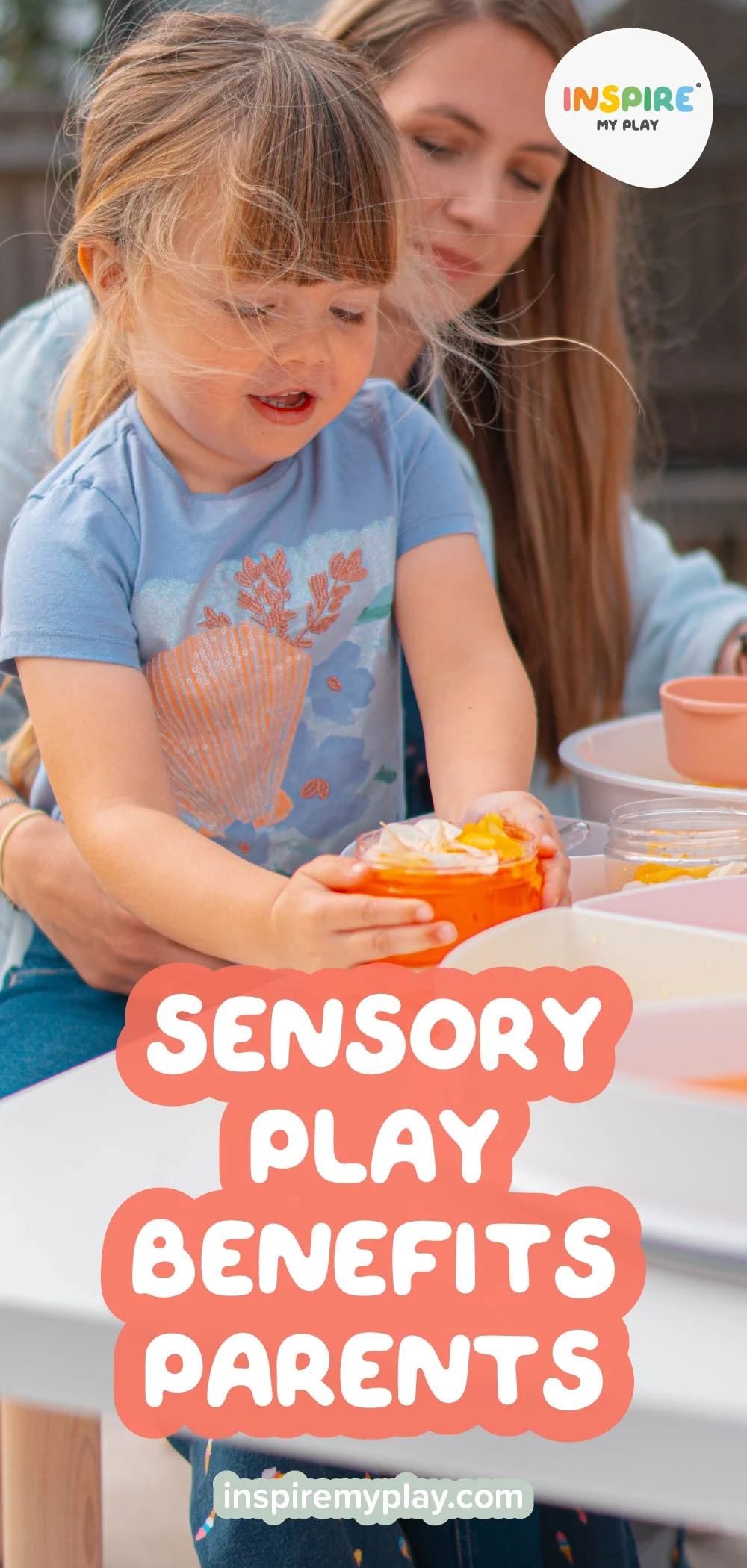
You can subscribe to our newsletter here to receive our free eBook ‘Getting Started With Sensory Play’ as well as a 10% off code to use on our website.
We’ll send you regular ideas for play that are quick and easy to set-up using items you probably already have at home!
Happy Playing!










